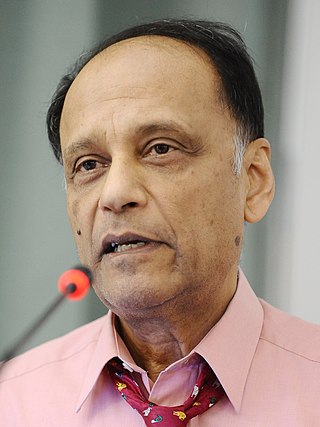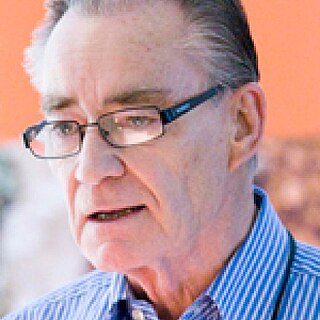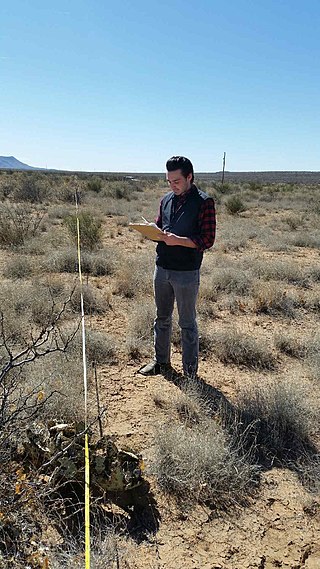Related Research Articles

Home economics, also called domestic science or family and consumer sciences, is a subject concerning human development, personal and family finances, consumer issues, housing and interior design, nutrition and food preparation, as well as textiles and apparel. Much less common today, it was, and is, most commonly taught in secondary school or high school.

Rural sociology is a field of sociology traditionally associated with the study of social structure and conflict in rural areas. It is an active academic field in much of the world, originating in the United States in the 1910s with close ties to the national Department of Agriculture and land-grant university colleges of agriculture.

In general, a rural area or a countryside is a geographic area that is located outside towns and cities. Typical rural areas have a low population density and small settlements. Agricultural areas and areas with forestry typically are described as rural. Different countries have varying definitions of rural for statistical and administrative purposes.
Agricultural economics is an applied field of economics concerned with the application of economic theory in optimizing the production and distribution of food and fiber products. Agricultural economics began as a branch of economics that specifically dealt with land usage. It focused on maximizing the crop yield while maintaining a good soil ecosystem. Throughout the 20th century the discipline expanded and the current scope of the discipline is much broader. Agricultural economics today includes a variety of applied areas, having considerable overlap with conventional economics. Agricultural economists have made substantial contributions to research in economics, econometrics, development economics, and environmental economics. Agricultural economics influences food policy, agricultural policy, and environmental policy.
The Australian Bureau of Agricultural and Resource Economics and Sciences (ABARES) is a federal research branch of the Australian Government Department of Agriculture, Water and the Environment, located in Canberra, Australia. ABARES was established on 21 August 1945 as the Bureau of Agricultural Economics (BAE), and is also involved in commercial consultancy. It was merged with the Bureau of Rural Sciences (BRS) in 2010. The main role of ABARES is to provide "professionally independent data, research, analysis and advice that informs public and private decisions affecting Australian agriculture, fisheries and forestry”. ABARES maintains the AgSurf database which includes farm survey data on farm performance, production benchmarks, farm management, socioeconomic indicators relating to the grains, beef, sheep and dairy industries in Australia. ABARES has received funding from business and industry groups. ABARES' website notes that "Over half of ABARES' external revenue is derived from commercial consulting work."

Colin Grant Clark was a British and Australian economist and statistician who worked in both the United Kingdom and Australia. He pioneered the use of gross national product (GNP) as the basis for studying national economies.

Sir Partha Sarathi Dasgupta is an Indian-British economist who is Frank Ramsey Professor Emeritus of Economics at the University of Cambridge, United Kingdom, and a fellow of St John's College, Cambridge.

John Quiggin is an Australian economist, a professor at the University of Queensland. He was formerly an Australian Research Council Laureate Fellow and Federation Fellow and a member of the board of the Climate Change Authority of the Australian Government.


An economy is an area of the production, distribution and trade, as well as consumption of goods and services. In general, it is defined as a social domain that emphasize the practices, discourses, and material expressions associated with the production, use, and management of scarce resources. A given economy is a set of processes that involves its culture, values, education, technological evolution, history, social organization, political structure, legal systems, and natural resources as main factors. These factors give context, content, and set the conditions and parameters in which an economy functions. In other words, the economic domain is a social domain of interrelated human practices and transactions that does not stand alone.
Economics education or economic education is a field within economics that focuses on two main themes:
The Association of Environmental and Resource Economists (AERE) was founded in 1979 in the United States as a means of exchanging ideas, stimulating research, and promoting graduate training in environmental and natural resource economics. The majority of its members are affiliated with universities, government agencies, non-profit research organizations, and consulting firms. Many of AERE's members hold graduate degrees in economics, agricultural economics, or related fields, but there are numerous student members as well. The organization also serves many non-specialist members with environmental policy interests. The United States is the country with the largest single share of AERE members, but the organization welcomes members from all countries. Annual individual memberships currently number approximately 800. AERE is generally acknowledged as the primary professional organization for Environmental and Natural Resources economists in the USA. The European Association of Environmental and Resource Economists is its European equivalent.

Daniel W. Bromley is an economist, the former Anderson-Bascom Professor of applied economics at the University of Wisconsin–Madison, and since 2009, Emeritus Professor. His research in institutional economics explains the foundations of property rights, natural resources and the environment; and economic development. He has been editor of the journal Land Economics since 1974.
Jock Robert Anderson is an Australian agricultural economist, specialising in agricultural development economics, risk and decision theory, and international rural development policy. Born in Monto, Queensland, he studied at the University of Queensland, attaining bachelor's and master's degrees in agricultural science. After graduation, Anderson joined the Faculty of Agricultural Economics at the University of New England. At New England, he focused on research in farm management, risk, and uncertainty and received a doctor of philosophy in economics in 1970. In 1977, Anderson co-authored a book, Agricultural Decision Analysis, which has served as an influential source on risk and decision analysis for agricultural economics researchers and the agricultural industry.
Kym Anderson is an Australian economist, specialising in trade policy and issues related to the World Trade Organization. He studied at the University of New England, the University of Adelaide and the University of Chicago before completing a PhD at Stanford University. He holds a Personal Chair in the School of Economics and is Foundation Executive Director of the Centre for International Economic Studies at the University of Adelaide
Michael John Taylor is a former senior Australian public servant and policymaker. He is currently an Independent Director of the Bushfire CRC.
Geoffrey Lee Miller was a senior Australian public servant.

Stuart Francis Harris is a retired Australian senior public servant and academic. He was born in London, England.

Rangeland management is a professional natural science that centers around the study of rangelands and the "conservation and sustainable management [of Arid-Lands] for the benefit of current societies and future generations." Range management is defined by Holechek et al. as the "manipulation of rangeland components to obtain optimum combination of goods and services for society on a sustained basis."
References
- ↑ "AARES | Australasian Agricultural and Resource Economics Society".
- ↑ "History | AARES".
- ↑ "The Australian Journal of Agricultural and Resource Economics". Australian Journal of Agricultural and Resource Economics. CiteSeerX 10.1.1.362.2809 . doi:10.1111/(ISSN)1467-8489.
- ↑ "History | AARES". Archived from the original on 2010-04-27.